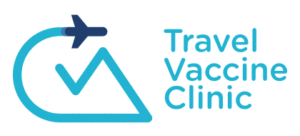No Consult Fee travel Clinic-Advice and Vaccines for India
TRAVEL ADVICE AND VACCINES FOR INDIA
Call 416-461-2419 Travel Vaccine Clinic
Going to INDIA?
You should be up to date on routine vaccinations while traveling to any destination. Some vaccines may also be required for travel.
Vaccinations you might need:
Measles Mumps Rubela, (MMR), diphteria-tetanus-ertussis, chickenpox, polio, flu, Hepatitis A, Typhoid, Cholera, Hepatitis B, Malaria Prevention, Japanese Encephalitis, Rabies, Yellow Fever.
During your consultation with our travel medicine expert we will confirm what vaccinations and medications you need.
What do In order to protect myself
Food: High heat kills the germs that cause travelers’ diarrhea, so food that is cooked thoroughly is usually safe as long as it is served steaming hot. Be careful of food that is cooked and allowed to sit at warm or room temperatures, such as on a buffet. It could become contaminated again. High heat kills the germs that cause travelers’ diarrhea, so food that is cooked thoroughly is usually safe as long as it is served steaming hot. Be careful of food that is cooked and allowed to sit at warm or room temperatures, such as on a buffet. It could become contaminated again. Raw food should generally be avoided. Raw fruits or vegetables may be safe if you can peel them yourself or wash them in safe (bottled or disinfected) water. Steer clear of platters of cut-up fruit or vegetables. (Did you see the hands that cut them? Can you be sure those hands were clean?) Salads are especially problematic because shredded or finely cut vegetables offer a lot of surface area for germs to grow on. Also avoid fresh salsas or other condiments made from raw fruits or vegetables. Raw meat or seafood may contain germs; this includes raw meat that is “cooked” with citrus juice, vinegar, or other acidic liquid (such as ceviche, a dish of raw seafood marinated in citrus juice).
Street vendors in developing countries may not be held to the same hygiene standards as restaurants (which may be low to begin with), so eat food from street vendors with caution. If you choose to eat street food, apply the same rules as to other food; for example, if you watch something come straight off the grill (cooked and steaming hot), it’s more likely to be safe.
Bushmeat Bushmeat refers to local wild game, generally animals not typically eaten in the United States, such as bats, monkeys, or rodents. Bushmeat can be a source of animal-origin diseases, such as Ebola or SARS, and is best avoided.Drinks: Hot coffee or tea should be safe if it is served steaming hot. It’s okay to let it cool before you drink it, but be wary of coffee or tea that is served only warm or at room temperature. Be careful about adding things that may be contaminated (cream, lemon) to your hot drinks (sugar should be fine; see “Dry food” above).
Milk : Pasteurized milk from a sealed bottle should be okay, but watch out for milk in open containers (such as pitchers) that may have been sitting at room temperature. This includes the cream you put in your coffee or tea. People who are pregnant or have weakened immune systems should stay away from unpasteurized milk or other dairy products (cheese, yogurt).
Alcohol: The alcohol content of most liquors is sufficient to kill germs; however, stick to the guidelines above when choosing mixers and avoid drinks “on the rocks” (see “Ice” below). The alcohol content of beer and wine is probably not high enough to kill germs, but if it came from a sealed bottle or can, it should be okay.
Can Be Risky: Tap water
In most developing countries, tap water should probably not be drunk, even in cities. This includes swallowing water when showering or brushing your teeth. In some areas, it may be advisable to brush your teeth with bottled water. Tap water can be disinfected by boiling, filtering, or chemically treating it, for example with chlorine.
Fountain drinks
Sodas from a fountain are made by carbonating water and mixing it with flavored syrup. Since the water most likely came from the tap, these sodas are best avoided. Similarly, juice from a fountain is most likely juice concentrate mixed with tap water and should be avoided.
Ice : Avoid ice in developing countries; it was likely made with tap water.
Freshly squeezed juice: If you washed the fruit in safe water and squeezed the juice yourself, drink up. Juice that was squeezed by unknown hands may be risky. The same goes for ice pops and other treats that are made from freshly squeezed juice.

